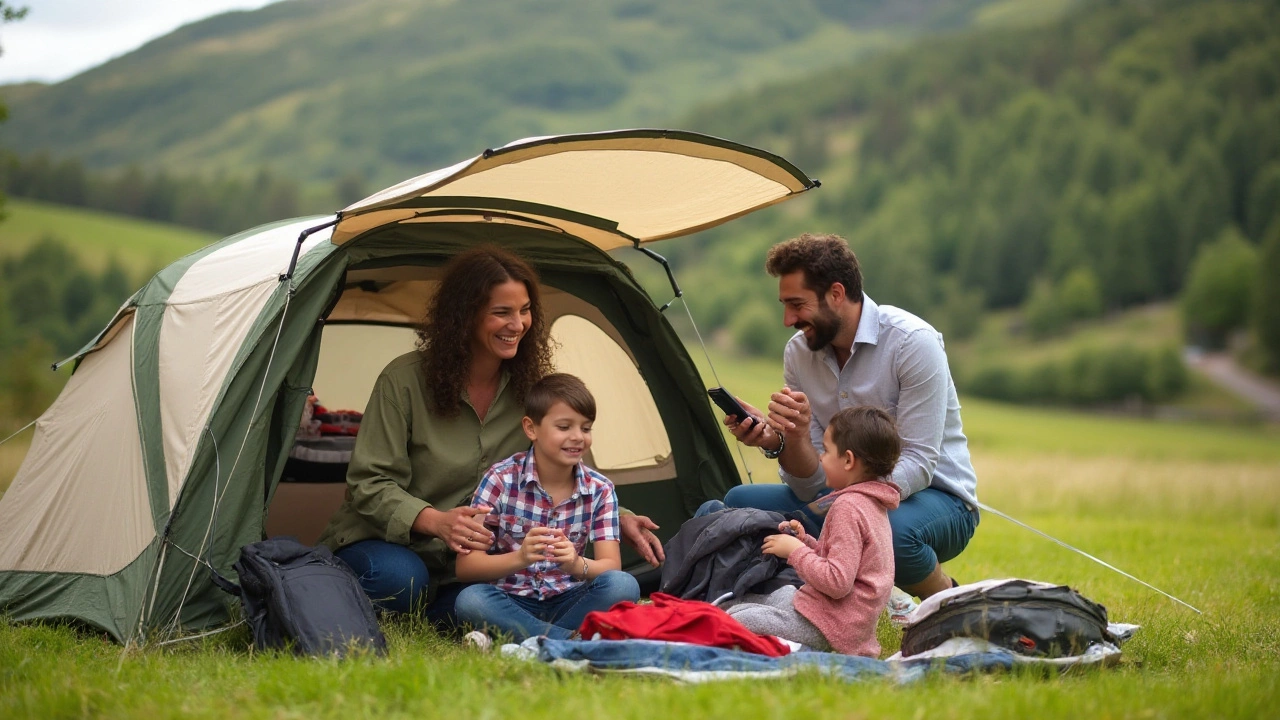Camping Budget: How to Keep Costs Low and Still Have Fun
If you love the outdoors but hate breaking the bank, you’re in the right spot. Camping can be cheap, but only if you plan ahead. Below are real‑world ideas that help you spend less on campsites, gear, food and fuel.
How Much Does Camping Really Cost?
First, understand the basics. A typical campsite in the UK charges anywhere from £10 to £30 per night, depending on location, facilities and season. Luxury glamping spots can hit £70 or more, while wild‑camping (where it’s legal) is free. Add a small fee for electricity hookups – usually £2‑£5 per night – and you have a baseline.
Compare that to a budget hotel at £50‑£80 per night, and the savings are clear. Even a mid‑range hotel at £90 per night can cost twice as much as a basic pitch. So, the biggest win is simply choosing the right type of site.
Don’t forget transport. Driving a motorhome uses more fuel than a car, but pulling a camper can be cheaper on fuel if you own a fuel‑efficient vehicle. Use a fuel‑consumption calculator before you book to see which option fits your budget.
Top Ways to Stretch Your Camping Budget
Book early and look for off‑peak deals. Campsites lower rates by up to 30% in Spring and Autumn. Many sites also offer discounts for mid‑week stays.
Bring your own food. Cooking on a portable stove is far cheaper than eating out. Plan meals around cheap staples – pasta, rice, beans and seasonal veg. Pack a cooler with leftovers from home to avoid pricey campsite shops.
Rent or borrow gear. If you’re new to camping, don’t buy a whole set of equipment. Local hire shops let you rent tents, sleeping bags and chairs for a fraction of the purchase price. Friends often have spare gear they’re happy to lend.
Use free activities. Hiking, swimming and wildlife watching cost nothing. Check local council websites for free events or guided walks that add value to your trip without extra spend.
Cut electricity costs. Plug into the campsite’s power only when you need it. Use battery‑powered lights and a solar charger for phones. Many sites provide free water, so skip bottled water and bring a refillable bottle.
Share the ride. Split fuel and campsite fees with a travel buddy. Two people in a camper share costs, and you’ll have company for campfire stories.
Finally, keep an eye on hidden fees – dump‑station charges, pet fees, and extra charges for extra people. A quick call to the site ahead of time saves surprise costs.
With these tricks, you can stretch a modest budget into a week‑long adventure that feels richer than any hotel stay. The next time you plan a road trip, start with the numbers, pick a cost‑friendly site, and pack smart. Your wallet will thank you, and you’ll still get all the freedom and fresh air camping offers.
How to Budget for a Memorable Family Camping Trip
Planning a family camping trip requires a bit of budgeting to ensure you have everything you need without breaking the bank. From choosing the campsite to packing essentials, it's important to consider the costs involved and how they add up. This article provides practical advice on estimating these expenses, along with tips to save money and make the most out of your outdoor adventure.
